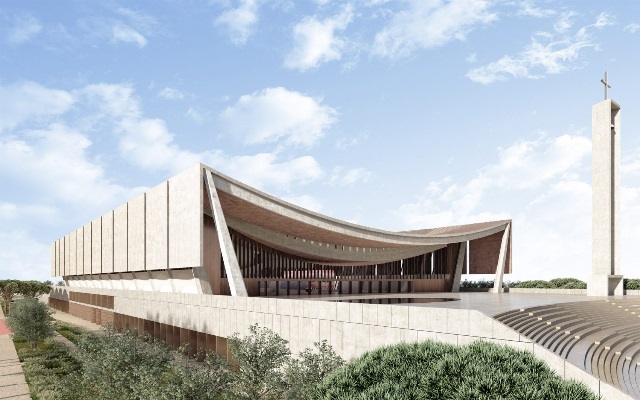Plans by the current Akufo-Addo administration to construct a 50,000-seater multipurpose National Cathedral have been boosted following the dismissal of a writ challenging its constitutionality by the Supreme Court.
The apex court, in a unanimous decision yesterday, held that the decision by the government to support the construction of the edifice does not amount to discrimination against any group or religious groups.
The court, in its judgment, essentially gave government the green light to assist religious groups, as there is nothing unconstitutional about the plan.
The apex court also held that the construction of the cathedral is in tune with the social and political objectives of the 1992 Constitution.
Acting General Secretary of the Convention People’s Party (CPP), James Kwabena Bomfeh, sued the Attorney General, Gloria Afua Akuffo over plans by the Akufo-Addo administration to construct a national cathedral.
According to him, government has no business in religious affairs in the country and wants the support given to Muslim pilgrims declared unconstitutional.
Mr. Bomfeh, who filed the suit through his lawyer Baasit Abdul Aziz Bamba, prayed the apex court to interpret certain constitutional provisions, which in his view were being breached by the current administration in its bid to put up the cathedral.
It also questioned the decision by the President to allocate land for the construction of the project, arguing that the president does not have any constitutional right to allocate lands.
He was also seeking a “declaration that the setting up of a Hajj Board by the Government of the Republic of Ghana for the purpose of coordinating, supporting and/or aiding Ghanaian Muslims to embark on a religious pilgrimage to Mecca…” is unconstitutional.
Deputy Attorney General, Godfred Yeboah Dame, opposed the writ, arguing that the matter before the court does not raise any constitutional matter which must be interpreted.
He said government did not err in extending a helping hand to religious groups, as the Constitution itself recognises the existence of God.
Judgment
The seven-member panel, presided over by Justice Sophia S.O Adinyira, with Justices Jones Dotse, Anin-Yeboah, Sulemana Gbadegbe, Vida Akoto-Bamfo, A.A Benin and Samuel Marful Siau, unanimously dismissed the writ.
According to the court, there is no ambiguity in the stated constitutional provisions, which the plaintiff was asking it to interpret, as they are self explanatory and easy to understand.
The court also rejected the assertion by the plaintiff that plans to construct the national cathedral meant the state was excessively involving itself in religious activities.
The justices held that nothing prohibits the states from lending a helping to religious groups in the country given the vital role these groups have played in national development over the years.
By Gibril Abdul Razak


